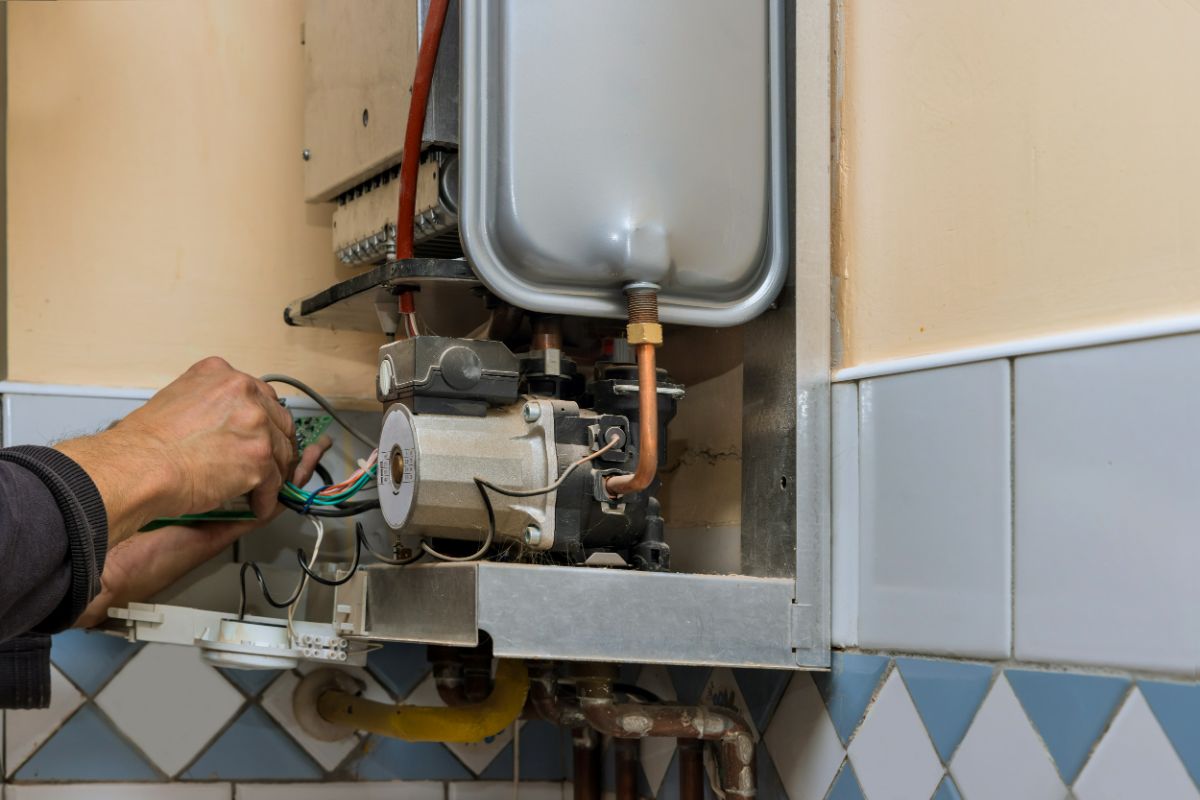Are you searching for information on How to Maintain a Hot Water Heater in a Few Simple Steps?

Warm water is necessary for daily convenience, whether it's for a refreshing shower or washing meals. To guarantee your hot water system runs successfully and lasts longer, normal maintenance is crucial. This article offers sensible tips and understandings on just how to keep your home's warm water system to avoid disruptions and expensive repairs.
Introduction
Keeping your home's hot water system may appear difficult, however with a couple of easy actions, you can ensure it operates efficiently for years to find. This overview covers everything from comprehending your hot water system to DIY upkeep tips and understanding when to employ specialist help.
Significance of Preserving Your Warm Water System
Regular maintenance not just expands the lifespan of your hot water system however additionally ensures it runs efficiently. Overlooking upkeep can bring about decreased performance, greater power bills, and even premature failure of the system.
Indicators Your Hot Water System Requirements Upkeep
Recognizing when your hot water system needs focus can protect against major problems. Watch out for indicators such as irregular water temperature, unusual noises from the heater, or rustic water.
Comprehending Your Warm Water System
Prior to diving right into maintenance tasks, it's useful to comprehend the fundamental elements of your warm water system. Commonly, this consists of the hot water heater itself, pipes, anode rods, and temperature controls.
Monthly Upkeep Tasks
Normal month-to-month checks can aid capture small concerns prior to they rise.
Purging the Hot Water Heater
Purging your hot water heater removes sediment build-up, boosting performance and extending its life.
Monitoring and Changing Anode Rods
Anode rods stop rust inside the storage tank. Checking and replacing them when worn is important.
Examining and Changing Temperature Settings
Adjusting the temperature level setups makes certain ideal efficiency and security.
DIY Tips for Maintenance
You can perform numerous upkeep tasks yourself to keep your warm water system in leading problem.
Checking for Leaks
Routinely inspect pipelines and links for leaks, as these can result in water damage and greater expenses.
Evaluating Pressure Alleviation Valves
Checking the pressure relief valve guarantees it operates properly and avoids excessive stress accumulation.
Insulating Pipelines
Shielding hot water pipes lowers warm loss and can save power.
When to Call an Expert
While DIY upkeep is helpful, some problems require specialist competence.
Complex Concerns Needing Specialist Assistance
Examples consist of major leakages, electric problems, or if your hot water heater is regularly underperforming.
Routine Expert Maintenance Conveniences
Expert upkeep can include thorough assessments, tune-ups, and ensuring conformity with safety and security requirements.
Conclusion
Regular maintenance of your home's warm water system is crucial for efficiency, longevity, and price savings. By following these ideas and understanding when to seek specialist help, you can make certain a reputable supply of warm water without unexpected disturbances.
How to Maintain and Troubleshoot Your Heat Pump Water Heater
Know Your Water Heaters Error Codes and How to Clear Them
If your unit is WiFi-enabled, pay attention to the notifications your water heater system sends you and make sure to read and investigate error codes as soon as possible. If your machine has an error code readout on the unit, use your owner’s manual for the hot water heater and find out what the codes mean and how they might be affecting your water heating system. Follow the manufacturer’s directions to assess the issue and clear the code, or call a licensed plumber to take care of that for you.
Change Your Filters Monthly or As-Needed
Heat pump water heaters come equipped with an air filter, usually on the top of the unit where the water heater pulls air into the compressor. Check the filter every few months (put a reminder in your smartphone to make sure you don’t forget!). This will keep peak air flowing into your unit, helping it to work as efficiently as possible and resulting in energy savings over time.
Clean the Condensate Lines
Heat pump water heaters have a condensate drain. As the unit dehumidifies the surrounding area, the moisture has to go somewhere! Make sure to clean this condensate line every year to ensure it doesn’t get backed up with sediment or mold.
To clean the condensate lines, pour a cup of bleach in the access opening of the unit to kill any mold or mildew. Check that the bleach or water flows freely out of the lines, and unclog the lines if needed.
Flush Your Heat Pump Water Heater Annually
Heat pump water heaters are also sometimes referred to as hybrid heat pump water heaters. This is because they contain a backup heating electric heating element inside the tank: the same kind of anode rods used in traditional electric water heaters. That anode rod can become corroded over time from the minerals in your water, and it can begin to decay, break entirely, or heat less efficiently as it becomes corroded. One way to minimize or avoid this corrosion is by flushing your heat pump water heater annually. Just like flushing standard electric or gas water heaters, flushing your water heater is something that any homeowner can DIY if they have a few basic tools and some gumption.
https://www.waterheatersnow.com/blog/how-to-maintain-and-troubleshoot-your-heat-pump-water-heater

We were shown that write-up on What Kind of Maintenance Do Water Heaters Need? through a friend on our other web property. Appreciated our entry? Please quickly share it. Help someone else locate it. Thanks a lot for being here. Don't forget to come by our blog back soon.
Free Quote
Comments on “Best Practices for Caring for Your Home's Hot Water System”